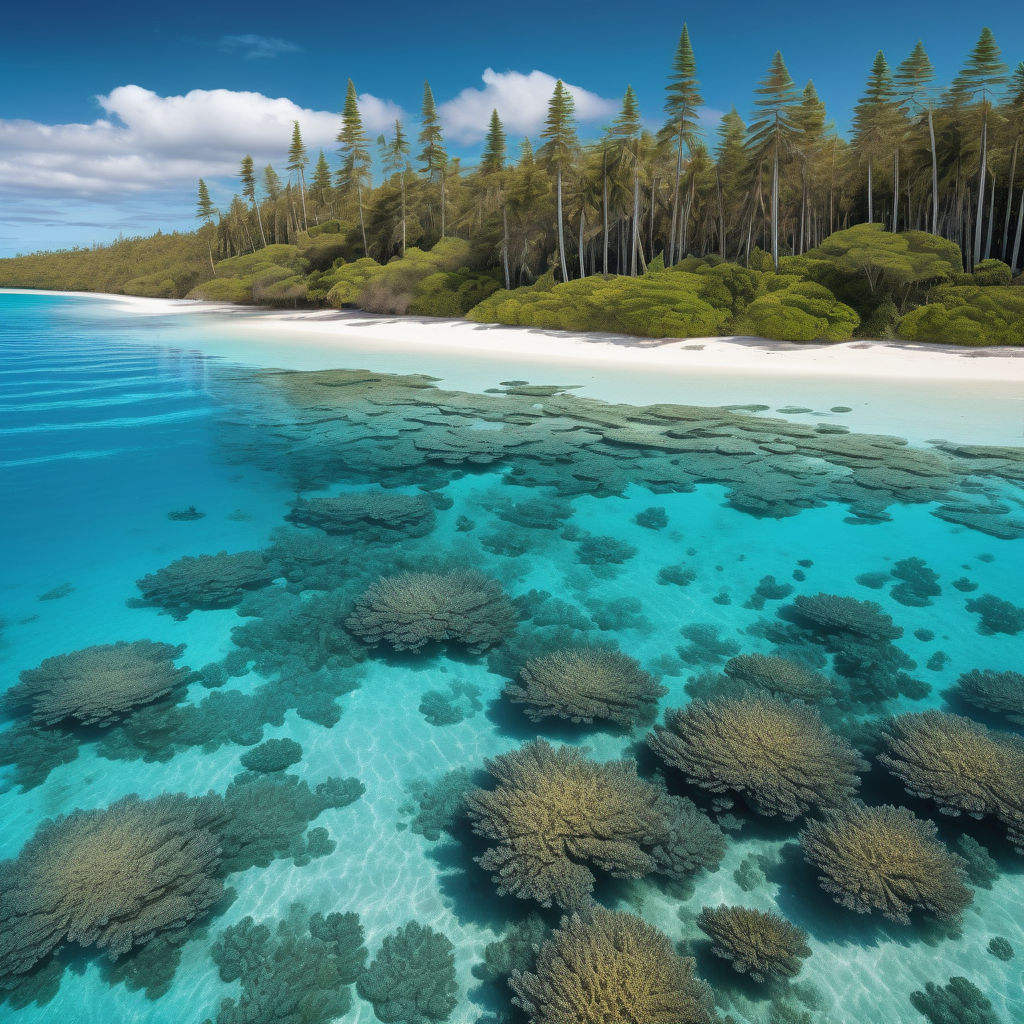Introduction to New Caledonia: A Pacific Paradise
Discovering New Caledonia: Culture, Nature, and Cross-cultural Dynamics

Introduction to New Caledonia
New Caledonia is a unique French territory located in the southwest Pacific Ocean, approximately 1,200 kilometers east of Australia. This archipelago comprises the main island, Grande Terre, the Loyalty Islands, the Isle of Pines, and several smaller islets. The capital city, Nouméa, is situated on Grande Terre and serves as the political, economic, and cultural hub of the region. New Caledonia is renowned for its stunning landscapes, including pristine beaches, lush rainforests, and the world's second-largest coral reef, which is a UNESCO World Heritage site. New Caledonia boasts a rich cultural heritage that reflects a blend of indigenous Kanak traditions, French colonial influences, and elements from various immigrant communities, including Polynesians, Asians, and Europeans. Traditional Kanak culture is characterized by its intricate wood carvings, vibrant dances, and ceremonies that celebrate life, nature, and community. This cultural diversity is celebrated through various festivals and events that highlight the unique blend of traditions that coexist in this island territory.
Cross-national and Cross-cultural Understanding
The people of New Caledonia generally exhibit a welcoming and open attitude towards other cultures, an attitude fostered by the country's diverse population and its historical interactions with various civilizations. This openness is evident in the numerous cultural exchanges, educational programs, and international partnerships that promote cross-cultural understanding. Cultural exchanges are a vital part of life in New Caledonia. The country hosts a variety of festivals and events that celebrate both local and international traditions. The Biennale of Contemporary Kanak Art, for instance, showcases the rich cultural heritage of the indigenous Kanak people while promoting cross-cultural dialogue with artists from around the world. Additionally, the annual French Film Festival in Nouméa attracts international participants and audiences, fostering cultural exchange and mutual appreciation. Educational programs in New Caledonia emphasize global awareness and cross-cultural understanding. Schools and universities incorporate multilingual education, with students learning in French, English, and local Kanak languages. International partnerships with institutions in France, Australia, and other countries facilitate student and faculty exchanges, enriching the educational experience and fostering global connections.
Interactions and Social Dynamics
Typical interactions between New Caledonians and foreigners are characterized by warmth, respect, and a strong sense of community. Social behaviors in New Caledonia reflect a blend of traditional Kanak customs and contemporary influences, emphasizing respect for others, hospitality, and communal living. Communication styles in New Caledonia are generally direct yet courteous. French is the official language and is widely spoken, especially in urban areas, while Kanak languages and other indigenous languages are also spoken, reflecting the country's linguistic diversity. This multilingualism facilitates interactions with tourists and expatriates, making it easier for them to integrate into the local community. Cultural norms in New Caledonia place a strong emphasis on respect for elders and community leaders, communal sharing, and a relaxed approach to time. These norms create a welcoming and inclusive atmosphere for foreigners, who often find it easy to adapt to the local way of life. Public displays of affection are generally limited, in line with traditional and religious customs, but social gatherings and communal activities are vibrant and inclusive.
Views on Dating and Relationships
Attitudes towards dating and relationships with foreigners in New Caledonia are generally open and accepting, though they are influenced by cultural and religious values. New Caledonians recognize the opportunities for cultural exchange and personal growth that such relationships can bring. However, cultural expectations and traditions play a significant role in shaping these views. Family involvement is crucial in relationships in New Caledonia, with elders often playing a significant role in the approval process. Traditional customs emphasize respect, patience, and the gradual building of trust in relationships. While modern dating practices influenced by global trends are becoming more common among younger generations, traditional values still hold sway in many communities.
Marriage and Family
Marrying a foreigner in New Caledonia involves navigating both legal and social considerations. Legally, the country follows French regulations governing marriage, including residency requirements and the need for proper documentation. Socially, cross-cultural marriages are generally accepted, though couples may face challenges related to cultural differences and integration. Familial acceptance is a key factor in cross-cultural marriages. New Caledonian families can be protective, and gaining their approval is often essential for the relationship's success. However, the diverse cultural landscape of New Caledonia means that many families are already familiar with and accepting of different cultural backgrounds, which can facilitate smoother integration for foreign spouses. Trends in cross-cultural marriages reflect New Caledonia's open and inclusive society. Many New Caledonians who travel abroad for education or work form relationships with individuals from various cultures, bringing back diverse customs and traditions that enrich the local community.